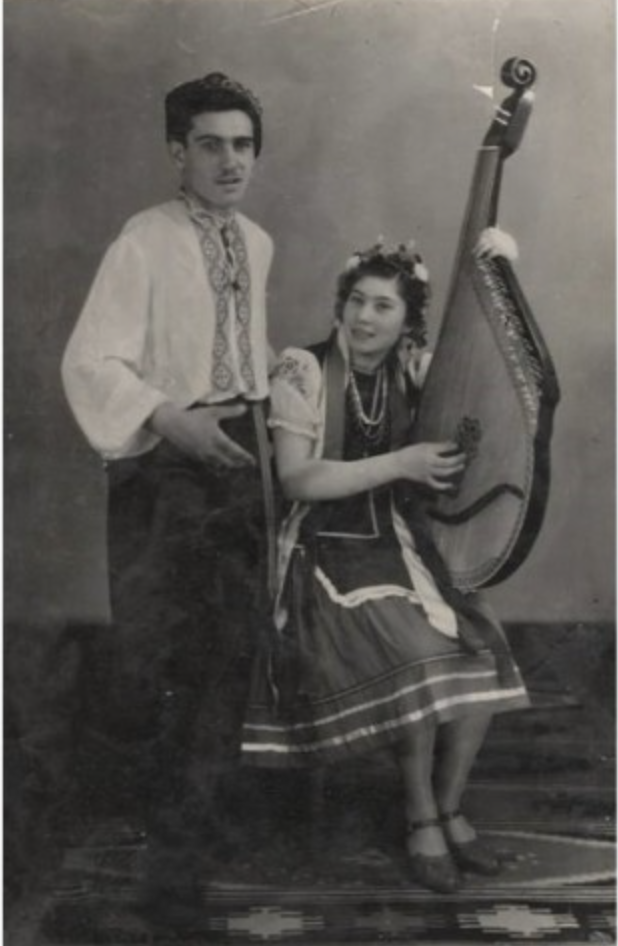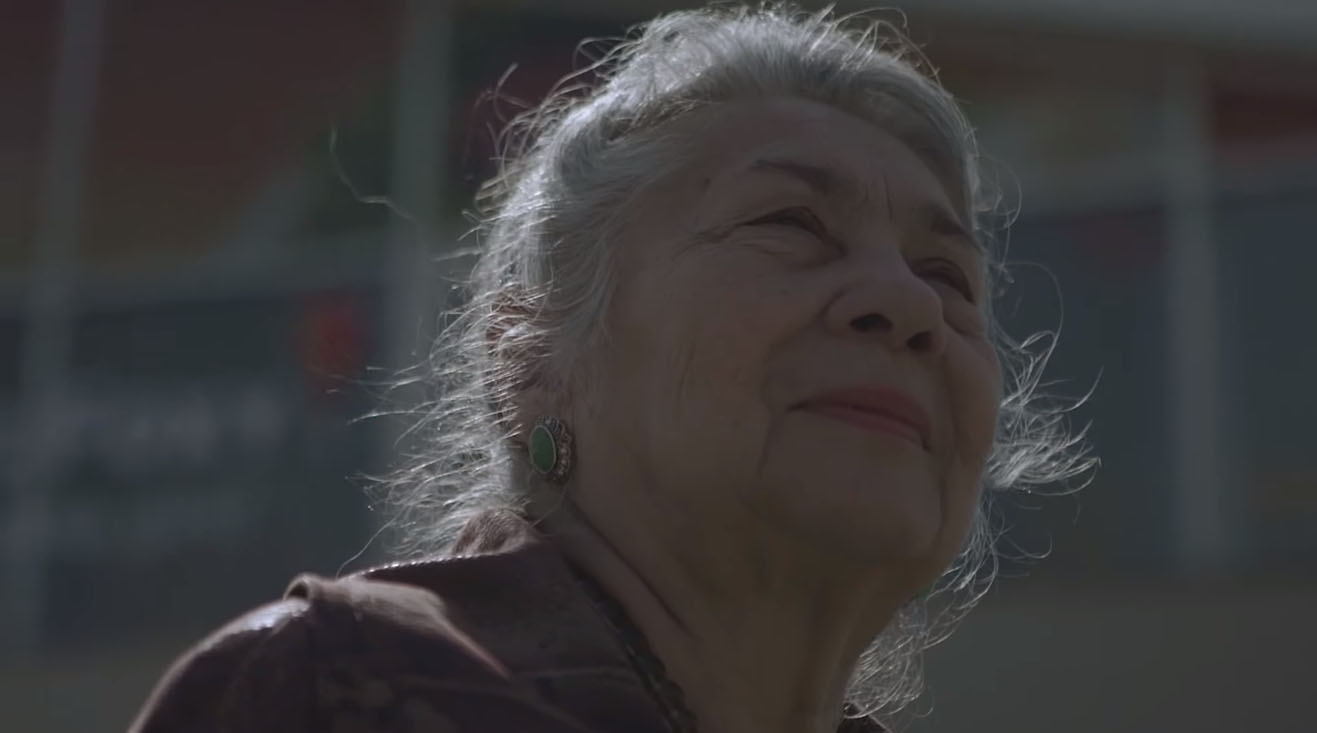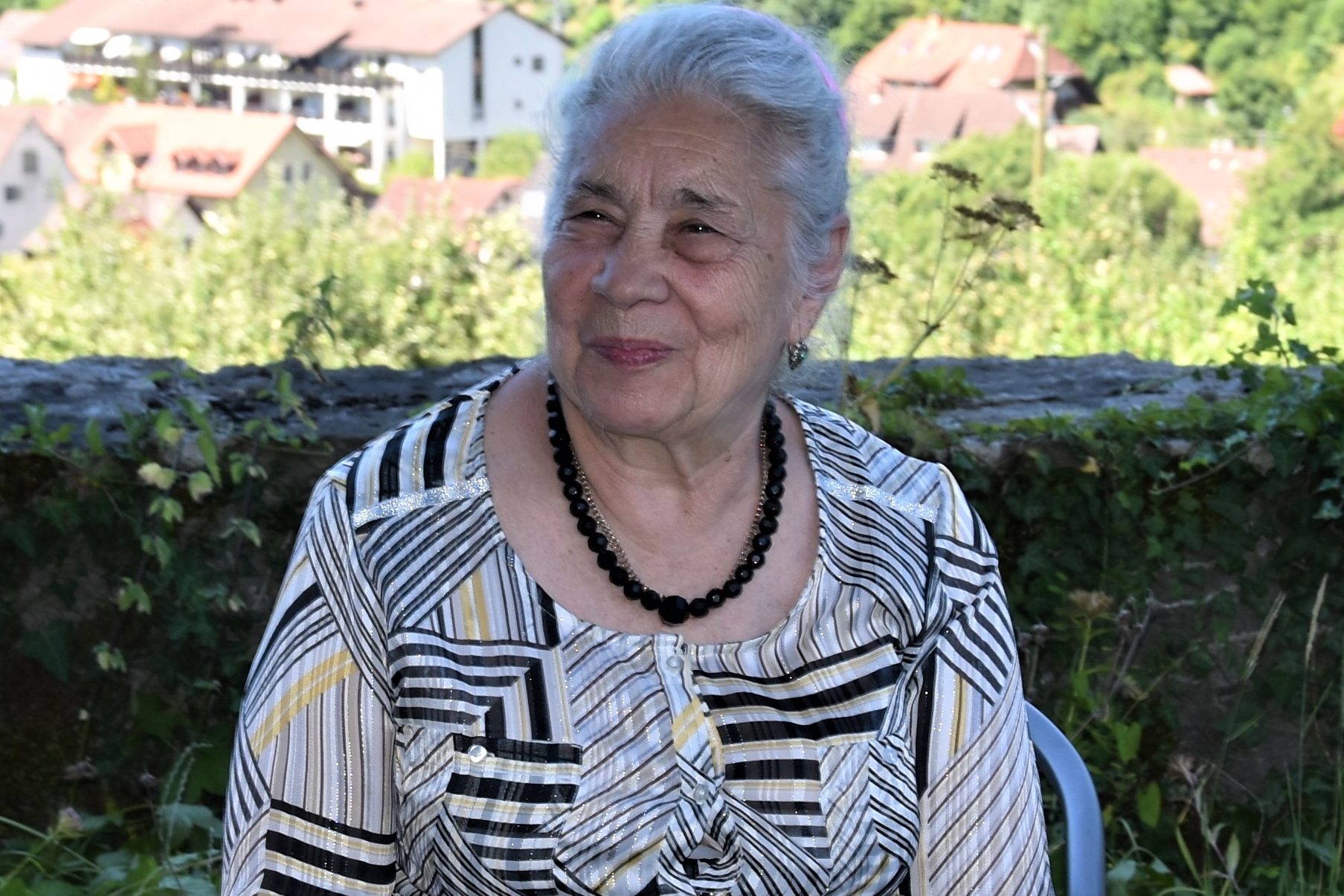"I am Ukrainian, yes – I am a Romani": the impressive story of the poetess Rani Romani.
In front of me is the first page of the book: floral, vibrant, colorful. Adorned with colorful ornaments and mosaic letters, it is filled with poetry, personal memories, correspondences, and photographs.
I first saw her at one of the literary residencies, where about a dozen Ukrainian writers, both men and women, gathered, all interested in Romani culture and immersion in its literary context. She came to the meeting with her sister. They were noticeably different from each other. In bright colors - a long skirt, a silk blouse. A floral scarf on the shoulders, lightly falling all the way to the knees, shimmering with golden hues. Elegantly styled hair, a frost of gray covering her head like a delicate weave.

The poetess Rani Romani – Raisa Nabaranchuk with her brother Leonid.
In contrast to her sister, who was dressed quite modestly in dark and gray tones, she resembled some ancient Indian queen. She spoke quietly and slowly, as if savoring each word. We watched and listened to her with curiosity. She shared family stories, the challenging experience of living through the German occupation, discrimination, and the difficult journey of carving out her place under the sun.
Raisa Nabaranchuk, or as most Roma people call her, Rani Romani, is one of the few representatives of Romani literature who became an important cult figure in the creation of Romani poetry and culture overall during her lifetime.
The poet Raisa Nabaranchuk (Rani Romani). A frame from the film " Seven Stories of Successful Romani Women."
She was born in Kyiv, where she grew up and was raised. The city, which she called her own at any opportunity. Raisa Nabaranchuk’s family thread traces back to the ancient Romani Sandulenko Startsev family. Her great-grandparents moved to Kyiv in the early 20th century. There, they were engaged in the hairdressing business, trying to make a living in various ways.

They invested all their love into their craft because they knew that any human endeavor should bring benefit not only to oneself but also to others. Later, Raisa's father opened a barbershop called " Master of the Golden Hands " in Kyiv. Eventually, his daughter also mastered this profession for herself. The father of the Romani poet experienced the Second World War and returned as a decorated veteran. This saved the Romani family from eviction from Kyiv during turbulent times. Raisa grew up in a large family - as befitting a Romani family. Five brothers and sisters, side by side, always together, enduring challenging times.
"I am Ukrainian, yes – I am a Romani. But we live in the same state. My poetry is about my country. About my people. About me," said Rani Romani during one of her poetic gatherings. She always emphasized the importance of belonging to her ethnicity, nation, and family. For her, poetry, and in general, poetic language, was inseparably linked to family history. It was about ancestral memory and respect for ancestors. Throughout her life, the Romani woman tried to record everything she heard, capturing words, voices, songs, and later transforming it all into cohesive poetry.
In 2008, a poetry collection by Rani Romani titled "Мирэ дрога мануша" was published, which translates to "My People, I Address You" in Ukrainian. Notably, the pages of the book feature poems in three languages: Romani, Ukrainian, and Russian. In addition to creating her own poetic meanings, Rani Romani worked in the genre of poetic and artistic translation, simultaneously being a voice for Romani literature in the contemporary Ukrainian literary scene.

One of Rani Romani's notable works is the translation of the poetry of Lina Kostenko, titled "Циганська муза" (Gypsy Muse). Ultimately, Rani Nabaranchuk maintained sisterly and warm relations with Lina Kostenko herself. Together, they shared and reflected on creativity, the mosaic nature of cultures, and the role of women in often challenging patriarchal contexts within literature.
During the major war and Russian occupation in Ukraine, Rani Romani was forced to leave her native Kyiv and emigrate to Germany. The longing for her homeland, the city, and the inability to be among her people took a toll on her. Unfortunately, Rani Romani left this world during one of the most turbulent times in Ukraine's history. However, she left behind a record of Romani culture—words, poetry—that remains for generations. It is something to which we often find ourselves returning, something that endures.
"Most important for me is that the people among whom we live understand us correctly, love us with all their soul, just as we love," were among the last words spoken by Raisa Nabaranchuk to the world.
See also
- «Невидимі. Стійкість: минуле і сучасність ромів». Як зрозуміти історію ромів через візуальну культу
- Альфреда Марковська: історія життя і порятунку інших
- «Дивись і не забувай»: 15 років Dikh He Na Bister у Кракові
- ФОТОРЕПОРТАЖ: У Києві відкрили виставку про ромську історію та ідентичність
- «Відновлення пам'яті – роми у Варшавському гетто». Історична екскурсія у Варшаві
- PHOTO REPORT: Events commemorating the victims of the Roma genocide in Babyn Yar
- 2 серпня — Міжнародний день памʼяті жертв геноциду ромів
- Коли допомога — це більше, ніж ваучер
- Антициганізм поруч: як розпізнати упередження у звичних словах і жартах
- Стереотип замість культури: як TikTok спрощує ромську ідентичність